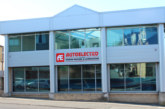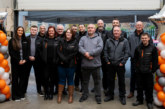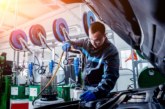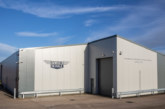
TotalEnergies Business Development Manager, David Valentyne, identifies a “challenging issue” that is doing the rounds in the industry at the moment and clarifies how you will “undoubtedly” play a critical role in helping technicians to address it.
That is, reconciling the continued push from governments, end consumers, investors and other stakeholders to become more environmentally-friendly – in line with the 2030 market changes now rapidly approaching – while also being conscious of the economic pressures facing both technicians and drivers today.
The latest RAC Report on Motoring offers some useful insights in that regard:
Rising oil prices in 2022 and cost of living increases, more generally, have seen the cost of fuel surge as the top concern for drivers. People are holding on to their cars for longer than ever before, while many drivers, particularly younger ones, are putting off getting repairs done.
This heightens the need for regular and effective servicing and maintenance to ensure vehicles are running safely and efficiently.
The RAC report also shows that, in response to a huge rise in concern about costs and affordability, the environmental impact of motoring has slipped down the list of worries for drivers compared to last year.
But the issue remains
The ban on new petrol and diesel cars comes into effect in just a few years, while businesses across the board are seeking to operate more sustainably as part of the wider journey towards net-zero – driven by both regulatory requirements, as well as the imperative to retain relevance and market share.
Taken together, keeping cars running efficiently and for longer, as well as reducing the carbon cost of scrappage, is key.
Lubricant selection is a critical aspect of this, and you can help technicians by encouraging them to engage proactively with their customers to improve understanding of what their vehicle requires and when. With climactic change continuing, we are much more likely to see temperature ‘extremes’ and, as you know, correct engine care is essential for ensuring safety, efficiency, reducing wear and tear, and minimising emissions.
No vehicle is the same, of course, and keeping a range of viscosity grades in stock, or having access to the right products through a just-in-time service, is crucial in ensuring technicians are prepared and to meet the needs of each individual vehicle and driver.
More commonly, technicians are often faced with complex designations when working on vehicles, both in response to OEM requirements and evolving technologies and environmental regulations.
“Space at a premium”
And it’s not just about what gets put in the vehicle either: more product means higher potential waste volumes. All told, space on site is at a premium, both for storage and to ensure the working environment remains safe and accessible.
The full product lifecycle and value chain needs to be considered when seeking to embed long-term sustainability while improving near term business outcomes.
Maximising storage capacity and minimising waste are vital for workshops, while effective recycling practices must be an essential component of any ongoing environmental commitment.
TotalEnergies’ response…
These are just some of the reasons for TotalEnergies developing Quartz Box, for example, which provides substantive reductions in plastic, increased recyclability, a space saving profile optimised for storage and delivery, and a smart design for easier, cleaner, safer product dispensing.
Workshops are increasingly having to serve multiple masters: price conscious consumers, more detailed OEM requirements, the rising cost of doing business, and the ongoing pressure to reduce emissions and improve environmental practices. Success in this context is no easy task, but you can help achieve this, whether that’s delivering stability of supply, market visibility and brand support, or helping to save space, overall costs, and improved sustainability through access to the latest product innovations.








